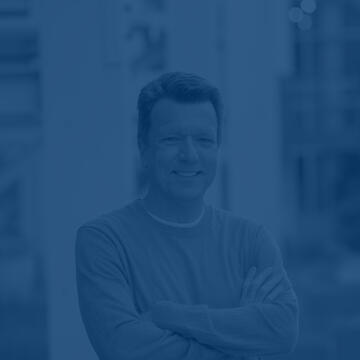The Cold War: Confrontation and Diplomacy in a World Divided
Course Description
For half a century, the Cold War defined global affairs. On the broadest level, it was a geopolitical conflict, pitting the democratic-capitalist West against the communist East. The history of the Cold War is the story of wars, crises, arms races, and diplomacy. But the Cold War also seeped into everyday life in innumerable societies, profoundly affecting politics, economics, ideology, and culture in ways grand and mundane.
This course will survey the Cold War from its origins in the 1940s until its end in the late 1980s. The goal is not to march systematically through the complex events of these years. Rather, the goal is to focus on major interpretative questions that have provoked debate among scholars, journalists, memoirists, and other chroniclers over the years. We will focus on the decisions and outlooks of the leaders who shaped the broad contours of the Cold War, but we will also consider the ways in which those choices shaped the lived experiences of ordinary people.
The course will begin by asking how the Cold War got started. We will then address why the Cold War, initially focused on Europe, became a global conflict. The third and fourth sessions will examine why the Cold War lasted so long by considering why periods of improved superpower relations in the mid-1950s and early 1970s gave way to heightened Cold War tensions in the early 60s and early 80s. The final session will examine why the Cold War ended in the late 1980s.
Information Links


- About the Professor
Mark Atwood Lawrence is Director of the LBJ Presidential Library and Museum in Austin, Texas. Until January 2020, he taught as Associate Professor of History at UT-Austin, where his classes focused on American and international history. Lawrence is the author of Assuming the Burden: Europe and the American Commitment to War in Vietnam (Berkeley: University of California Press, 2005), which won the Paul Birdsall Prize for European military and strategic history and the George Louis Beer Prize for European international history. In 2008, he published The Vietnam War: A Concise International History (New York: Oxford University Press), which was selected by the History Book Club and the Military History Book Club. He has also published several edited and co-edited books, as well as numerous articles, chapters, and reviews on various aspects of the history of U.S. foreign relations. In 2005, he was awarded the President’s Associates’ Award for Teaching Excellence at UT-Austin and in 2019 the Silver Spurs Centennial Teaching Fellowship from the UT College of Liberal Arts. Lawrence has held the Cassius Marcellus Clay Fellowship at Yale University (2006-2008) and the Stanley Kaplan Visiting Professorship in American Foreign Policy at Williams College (2011-2012). He earned his BA from Stanford University and his PhD from Yale University. His next book, In the Shadow of Vietnam: The United States and the Third World in the 1960s, will be published by Princeton University Press in fall 2021.
Required Reading(s) (Sold separately):
Campbell Craig and Fredrik Logevall, America’s Cold War: The Politics of Insecurity - Amazon - $21.50
Jeffrey A. Engel, Mark Atwood Lawrence, and Andrew Preston, editors, America in the World: A History in Documents from the War with Spain to the War on Terror - Amazon - $18.20
Week 1:
How did the Cold War begin?
Assigned Reading:
Craig and Logevall, introduction, chapters 1-2
Engel, et al., Documents 6.15, 7.1, 7.2, 7.3, 7.6
Week 2:
Why did the Cold War become global?
Assigned Reading:
Craig and Logevall, chapters 3-4
Engel, et al., Documents 7.11, 8.1, 8.3, 8.4, 8.6
Week 3:
Why did the Cold War become so dangerous in the early 1960s?
Assigned Reading:
Craig and Logevall, chapters 5-6
Engel, et al., Documents 8.11, 9.4, 9.5, 9.6, 9.7, 10.1, 10.3, 10.4, 10.7
Week 4:
Why did the Cold War become so dangerous in the early 1980s?
Assigned Reading:
Craig and Logevall, chapters 7-8
Engel, et al., Documents 12.1, 12.4, 12.5, 12.11, 12.12, 13.3, 13.5
Week 5:
Why did the Cold War end in the late 1980s?
Assigned Reading:
Craig and Logevall, chapter 9-conclusion
Engel, et al., Documents 13.6, 13.7, 13.8, 13.9, 13.10, 13.11, 13.12

April 28, 2021, at 4 p.m. eastern
(90-minute webinar)
Faculty: Elizabeth Nugent
Info Accordions
Yale Alumni Academy’s Virtual Seminars meet weekly on Zoom for five, 90-minute sessions. Enrollment is limited to 25 participants. This small group format thrives on a sense of intellectual collegiality, including sharing our backgrounds and the curiosities that we bring to this course. Online courses are primarily synchronous, with live sessions focused on discussion and interactive exchange amongst faculty and fellow participants.
Outside readings and other multi-media course materials enhance the learning experience and can be accessed via the private course website hosted on Yale’s Coursera learning platform. Participants will receive a training on the online tools, and technical support will be available throughout the program. To join the course, you will need a computer or tablet with a video camera and a high-speed internet connection.
Alumni and friends of Yale are welcome to register for this course on a space-available, first-come, first-served basis. Once all available course slots have been filled, new registrants will be notified by email of their status on the waiting list.
No-risk cancellation is available through Friday, June 21, 2021, after which time, there will be no refunds issued. If Yale Alumni Academy cancels any course prior to its start, you may sign up for another course, or your fee will be fully refunded.
Please be sure to complete all pages of the informational form. You MUST choose the registration fee at the bottom of the Registration Page to properly complete registration. Then be sure to click the final "Click to Complete Registration" button. Your reservation has not been received by the Academy until you complete payment information on the final screen. Please double-check that the name of your course is correct before confirming registration. You will receive a summary email immediately after you complete your registration.
Each registration covers one person. If your spouse or family member would like to join the course, please select "Add a Guest" at the bottom of the main registration page. You will be billed for the additional registration. If you have any questions, please contact the Yale Alumni Team at alumniacademy@yale.edu.
By registering for, attending, or participating in this event, I grant my permission to the Yale Alumni Association (YAA) and/or Yale University to photograph, videotape, and/or audio record my image and/or voice(and that of any minor guest attendees(s)) and the right to use and reproduce such as images and/or recordings in all media, including digital media, for purpose of promoting Yale University and the YAA programs and events, other purposes in accordance with Yale's mission. I understand that I will have no approval rights with respect to the use of these images.
